Updates
Drugs Or Herbs? Which Rascal Should You Take & Why?
I got an email from a college student today asking for some help with a speech she’s working on. She wanted to talk about herbal antibiotics…how I used them, why I liked them and how they compared to drugs. I wrote her an email and then decided as long as I’m telling her, I might as well tell the rest of you as well. :0)
As you likely know, I’ve been a practicing veterinarian for almost 30 years. I’ve seen a sick critter or two. I’ve been a clinical herbalist for a couple of decades as well and even went to naturopathy school just for fun. The naturopathy school made me do the herb lectures and run a big plant walk for the other students but they still gave me credit for that part of the course. :0) As a result, I have had two practices. So, if you were a dog, you went to the vet clinic. If you were just sick as a dog, you went to the naturopathy office.
Having this herbal and naturopathic experience and a veterinary degree, and also having a state board of pharmacy license and a DEA license and a veterinary license and all the other fancy pieces of paper that say I can poke pills and needles into dogs and other critters, has given me unique opportunities and choices that most healers don’t have. Basically, when a sick dog comes to see me, I can use whatever the heck I want to use in its treatment. As a result, I’ve had the opportunity to use herbs to treat everything from the common cold to gunshot wounds, rattlesnake bites, and gangrene. Over the years, I’ve used medications to treat those things as well. So, after a few decades of anecdotal research in my own practices, my opinions have developed pretty strongly on what works best for what.
And what do I generally prefer? Drum roll please….Yup! The weeds from my backyard!
My vet clinic has three or four small cupboards full of medications and a whole room full of herbs. Now, granted the herbs take up more space than the pills but that’s still a lot of green stuff.
So why so many herbs? Well, it’s because I can do a lot of things with plants that I can’t do with drugs. Don’t get me wrong, there are also some things I can do with drugs that I can’t do with herbs…but not very many.
The principle difference between a pharmaceutical and a plant is a question of complexity. You see a drug contains exactly one chemical. A single herb contains dozens. Ironically, the chemicals in many drugs are often synthesized versions of chemicals that scientists found in plants in the first place. In fact, in the good old days, pharmaceutical companies often hired fellows called ethnobotanists. They would pay these gents to paddle up the Amazon and talk to the headhunters about what plants they were using for arthritis or cancer or infections or whatever. They would then take those plants and bring them back to scientists in the lab who would throw them into a spectrophotometer and analyze the numerous chemicals the plants contained. Some nice fellow in a white lab coat would then pour over the screen looking at all the data. He’d excitedly yell “That’s the one, chemical number 38!“. Then he’d push a button and the next thing you know, little purple pills were coming out of a machine somewhere.
OK…so it’s probably more complicated than that but you get the idea. A single chemical from a medicinal bouquet of dozens was identified and synthesized to make the drug. As a result, you have an extremely focused medication that can do a very focused job. The disadvantage to this reductionist science protocol is that you don’t get the benefits of the whole package. What about chemical number 14 that improves bioavailability, or chemical number 23 that aids in the elimination of chemical number 7 that decreases side effects? They’re all gone. And the loss is unfortunate. In my experience as a practitioner, pharmaceuticals have vastly more negative side effects than any herbs I’ve used. I think this is largely due to the elimination of the other chemicals that were supposed to accompany the drug during its trip through the body.
A good example of this is the success I’ve sometimes had in turning around infections that were resistant to pharmaceuticals. So, why do the herbs knock out the infection when the drug won’t? Antibiotic resistance. You see, penicillin has exactly one chemical in it that kills bacteria…penicillin. Calendula, barberry, or any of the other antibiotic herbs almost always have numerous constituents doing that job.
The problem is that bacteria are clever little rascals. If you treat them with one chemical, they will eventually develop resistance to it. If someone were to whack me with a big stick every day (like penicillin), it wouldn’t be long before I figured out how not to get whacked with that stick. But if the same guy came at me with a stick, and a knife and a torch and a slingshot…well I’m going to have more trouble sorting that out before I’m in real trouble. The complexity of herbal antibiotics makes bacterial resistance much more difficult to achieve. I’ve addressed several MRSA cases over the years with no trouble at all simply by using herbs topically and internally.
Now I need to confess that one of the other reasons that the herbs sometimes outperform the drugs in my practice is that usually when I use herbs I cheat. Yup, when the penicillin isn’t looking, I’ll often add several other antibiotic herbs to my mixture. And, as if that weren’t sneaky enough, I’ll also add a bunch of immune-stimulating herbs. You see, one of the other significant advantages to herbs over drugs is that, in my experience, they can be mixed more freely and easily. That’s not to say that you don’t need to know what you’re doing but giving half a dozen antibiotic herbs in a formula won’t have anywhere near the consequences on a client that giving half a dozen different antibiotic drugs would have. So, when I’m dealing with a bacterial infection I generally give the INFXN-BugBuster and Immunity Support formulas together. Have a look at the ingredients of those two formulas. Talk about a broad spectrum of activity!
While we’re on the topic of infections, another significant advantage of herbs over pharmaceuticals is in the treatment of viral infections. There are very few drugs that are effective at killing viruses. But there are a number of herbs that do it handily. Herbs like elderberry for example have good activity against influenza and coronaviruses. So does yarrow and a couple of dozen others I won’t bother typing out. Have a look at the INFXN-ShooFloo and Cold Away formulas to see some of those players. Of course, as with bacterial cases, I almost always add a little Immunity Support to the roster when fighting viral pathogens.
As if killing the rotten virus wasn’t enough, herbs are also great at managing a number of the other miseries that accompany respiratory infections. Have a look at the formulas in the Respiratory Preparedness Kit. There’s a button on that page that says “How to Use This Kit” Click that to see what the various formulas do and how and when they could be used.
Herbs do lots of other things that drugs can’t do from supporting and healing the liver (Liver Builder) to accelerating wound healing (Poultice Formula) to cleansing the organs (Herbal Cleanse Kit) to neutralizing snake venom (Venom & Sting) and making your intestines happy (Digestive Support).
Drugs can also do some great things and physicians are, almost without exception, really competent and caring folks that have some wonderful skills and tools for many critical issues. I know I’ve saved some furry lives using drugs when herbs weren’t the best option. But, as a practitioner, I’m really grateful for God’s amazing green pharmacy and all of the wonderful things it has to offer.
-Doc
Join Us Live Tonight (April 15th at 6PM MST) For a FREE Special Webinar with Sharik Peck!
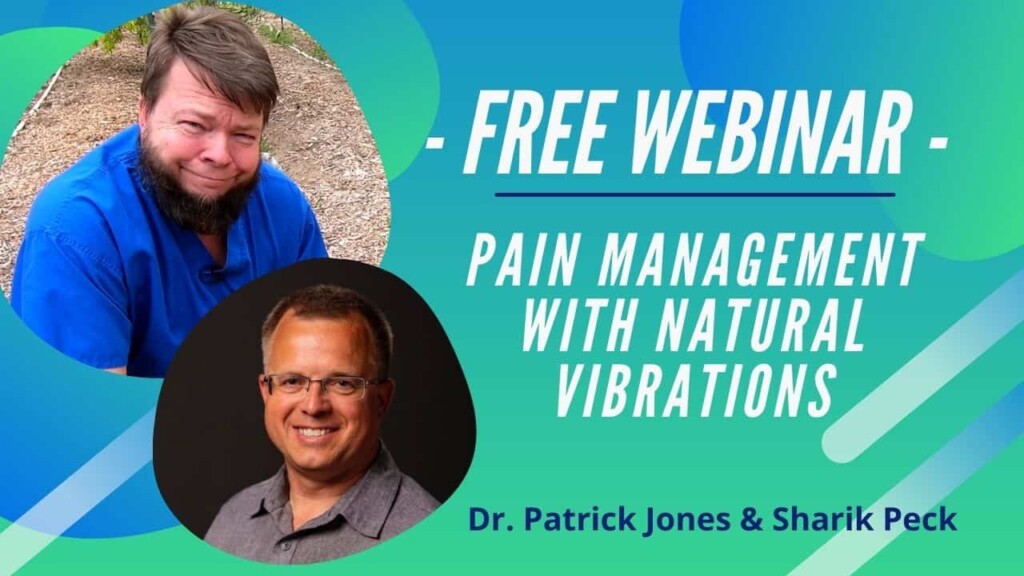



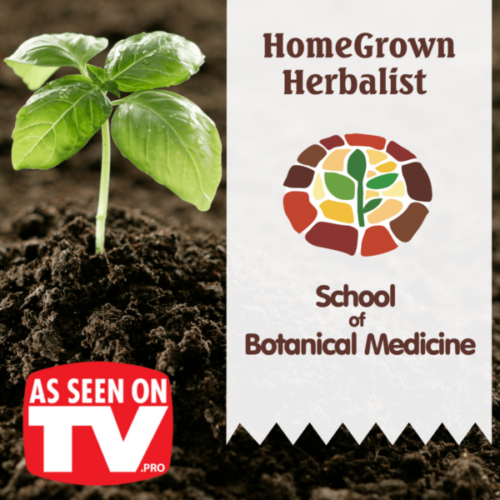
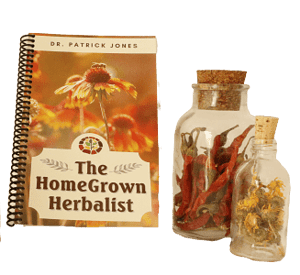

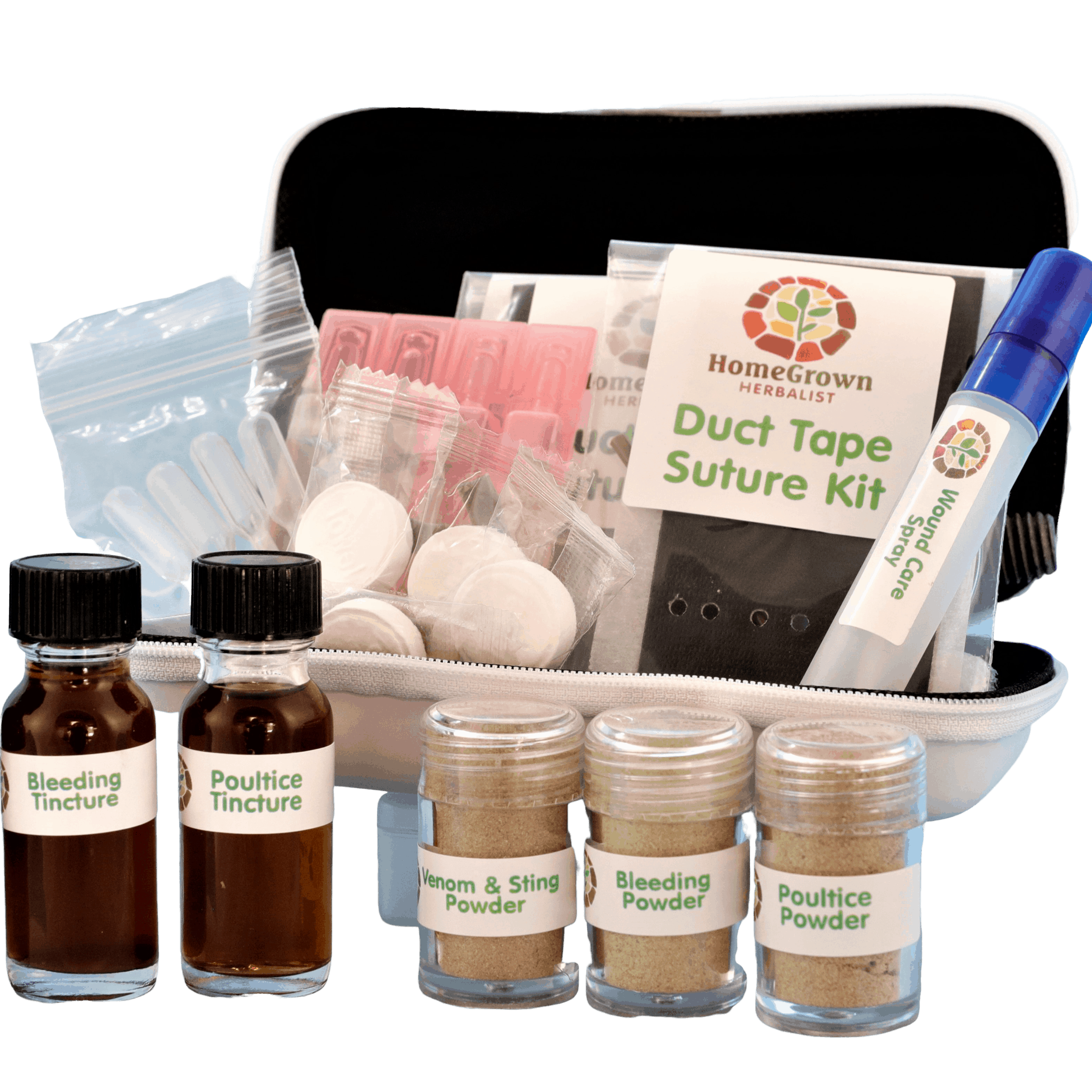
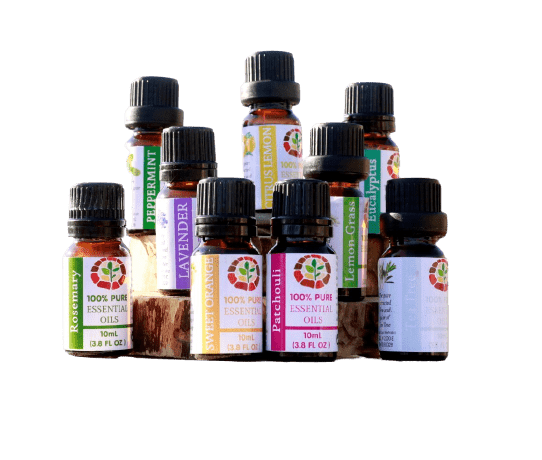
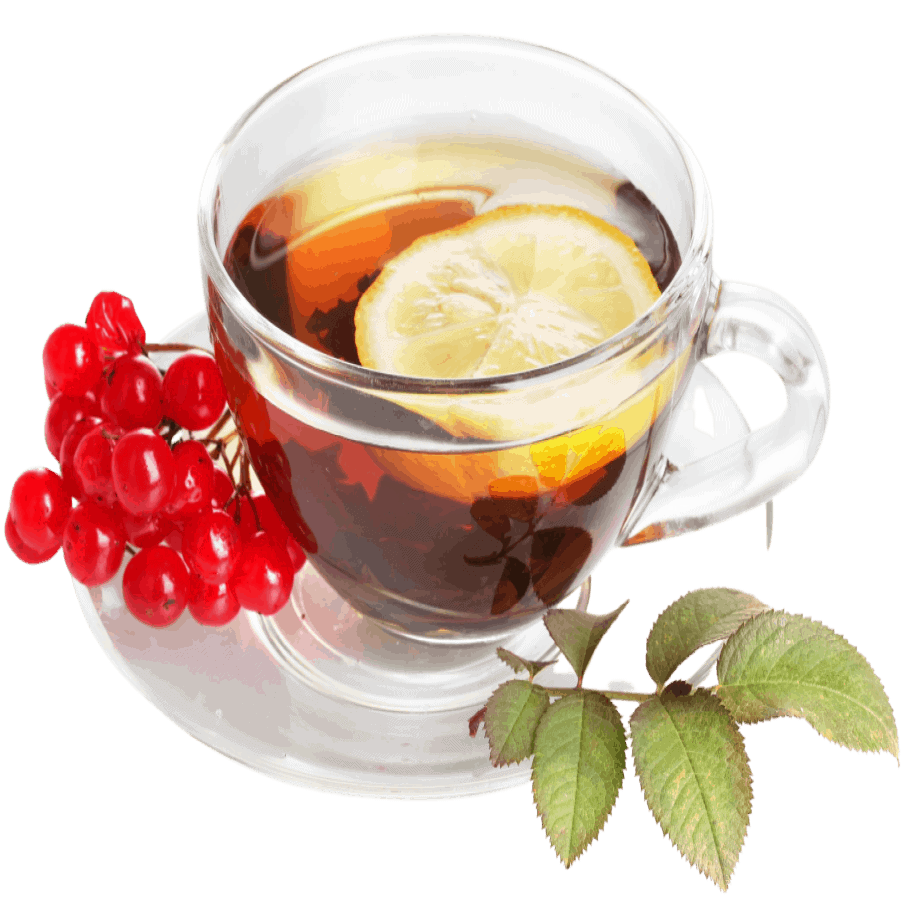
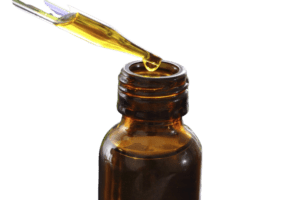
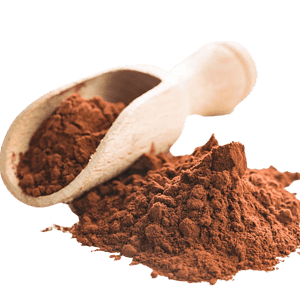
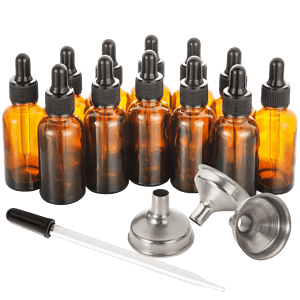
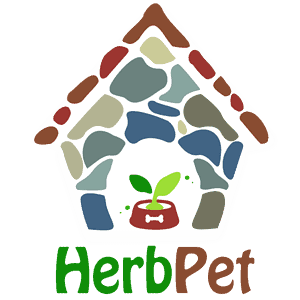
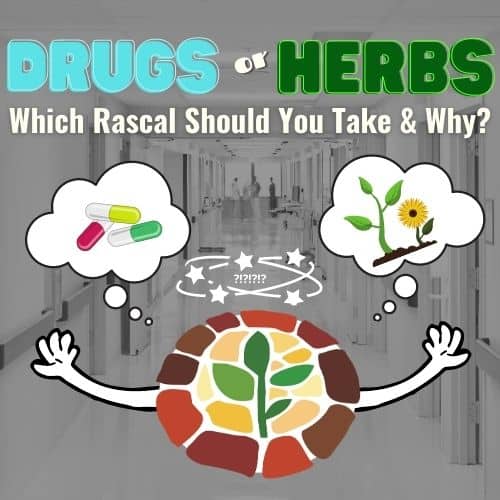
Doc,
Thank you so much for taking the time to share with us your wisdom. I hope you are doing well and healing nicely. I am loving learning about God’s pharmacy from you. He truly blesses us and you bless us by sharing. I am wondering about teasel for long-COVID, as it causes a multitude of symptoms neurological as well as many others similar to MS. I found some but the plants are still young and I don’t want to dig up roots until I see more. Do the leaves have any benefit?
I haven’t had occasion to try teasel for that. The leaves aren’t the nearly medicinal enough to take them instead of the roots.
Wonderful article… as usual. 🙂
I have heard it said that bacteria don’t actually develop immunity to antibiotics (since those that aren’t resistant don’t reproduce and are culled from the gene pool), but that what actually happens is that the bacteria that are resistant to a certain chemical are the ones that reproduce despite the presence of that chemical and their descendants take over. What do you think about that perspective?
Being born with immunity certainly does happen but it’s not the only thing that happens. In many bacteria species, when bacteria are exposed to something they have immunity to they get all excited about it and actually broadcast the news to their fellow bugs. Those other non-immune bacteria then are attracted to the new guy with the new plasmid that gives resistance and he gives them copies of the plasmid to poke into their own DNA so they can be resistant too. So antibiotic resistance can actually be taught to other bacteria that weren’t born with the gene. Its sort of like if a human was born knowing how to play the violin and then could pass that knowledge on to any other human that would shake his hand. Yeah…bacteria are clever little boogers.
I was telling my granddaughter about bacteria and how they communicate with each other and share plasmid. She looked at me and said, “It sounds like bacteria has it’s own social media” Perfect analogy.
Hmmm…that makes a lot of sense. I’ve always felt that social media had a lot of similarities to communicable diseases. LOL
Doc, what herbal formula do you recommend for antibiotic resistant bacterial infections (UTI)? My friend has gone through 5 rounds of antibiotics and the infection won’t go away. I think the critter she mentioned is Pseudomonas.
I’d do these:
Immunity Support https://homegrownherbalist.net/?s=immunity+support&post_type=product&title=1&excerpt=1&content=1&categories=1&attributes=1&tags=1&sku=1&orderby=date-DESC&ixwps=1
Kidney & Bladder-UTI https://homegrownherbalist.net/?s=immunity+support&post_type=product&title=1&excerpt=1&content=1&categories=1&attributes=1&tags=1&sku=1&orderby=date-DESC&ixwps=1
In the worst cases I add this one:
INFXN-BugBuster https://homegrownherbalist.net/?s=bugbuster&post_type=product&title=1&excerpt=1&content=1&categories=1&attributes=1&tags=1&sku=1&orderby=date-DESC&ixwps=1
Since learning about herbal medicine (and graduating from your school!!), I continue to be awed by how well herbs work. I have eased insomnia, fought infections (and won), eased headaches, stopped bleeding, sped up the healing of some pretty nasty wounds, handed out numerous “bags of weed” 😉 for hemorrhoid sitz baths to my husband’s co-workers–truck drivers and equipment operators who sit all day and probably need more fiber… drawn out slivers, tamed tummies, got to the bottom of my own endocrine issues, and so much more. I got exactly what I wanted from the school, which was an organized education about herbal healing instead of the hunt and peck education I was gaining going solo. My son works in a hospital (cardiosonographer) and he wades through Covid, Cdiff, hepatitis, and who knows what else on at least a weekly, if not daily, basis. He turns to Mama for immune support and a little beauty I whipped up called “Killer Cold Killer”. His co-workers beg for elderberry syrup and he directed his supervisor to me when he had concerns about his Mother’s health. I’m nothing special, but what the herbs do IS! You’ve made it possible for me to think through health conditions and to work with people who ask. (If you make the syrup/tincture/tea…they will come…. 😉 ) Thank you so much for all that you’ve put into the school! Doc Jones is a household name for us. God bless!
Michele I’m glad you’re doing well. I knew you would. :0)
Herbs really are a great resource and serve as a wonderful vehicle for blessing and serving others…And the loving and caring that regularly attends folks that are helping others with herbs is a wonderful healer as well.
Hi Doc, I have an old cat 17 years old and she stopped eating. She was just skin and bones and I really expected her to die. Last month I decided to try something with herbs and since I knew I couldn’t get any down her, I rubbed oregano tincture on the back of her neck and or on her paw. After 2 days, she started to eat full fat yougurt and last week she started eating raw hamburger. She is beginning to gain weight. Don’t know for sure but I think the oregano did something to help her heal. So happy to see her up and around feeling better. Thank you for all you have taught me.
Debbie
Glad she’s feeling better.
Have a look in her mouth. Often times going off food is a sign of a sore tooth. the Oregano has some good antibiotic and anti-inflammatory properties but if there is a bad tooth, she might some more attention with it. If the infection was somewhere else, the oregano may have knocked it out permanently. :0)
Thank you
Hello. My daughter had emergency surgery in Feb 2019 to remove her appendix, cecum and most of the ascending bowel. Eventually they diagnosed her as having crohn’s. Do you have any herbal recommendations to help her manage this any maybe even find some healing?
I don’t have an herbal cure for Krohn’s. But there are some things that can be helpful. Shoot me an email.